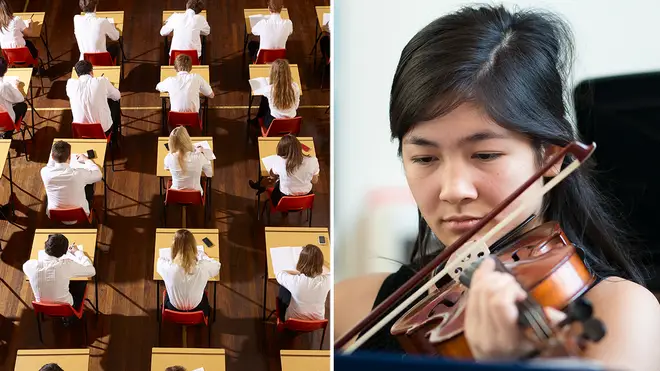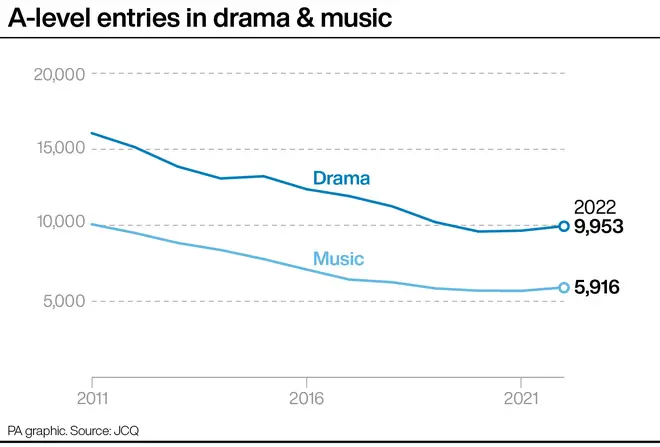On Air Now
Classic FM Breakfast with Dan Walker 6:30am - 9am
19 August 2022, 13:39 | Updated: 19 August 2022, 15:18

New figures show a hopeful increase, after music student numbers have fallen alarmingly since 2008.
Figures from the Joint Council for Qualifications (JCQ) show that 5,916 students took music at A-level in 2022 – an increase on 5,686 in 2021.
The uplift, revealed in a report released on 18 August, follows a net 14-year decline in A-level music entries since 2008, when nearly 10,000 students were enrolled.
The rapid decline in figures for music education has been a source of much concern in recent years. In 2018, The Association of School and College Leaders (ASCL) warned that A-levels in music, French, and German were at risk of disappearing from state education after funding cuts of up to 39 per cent.
Read more: ‘Funding crisis’ poses serious threat to A-level music and languages

Entries for A-level music fell by 43 percent between 2011 and 2020. At the time, Deborah Annetts, chief executive of the Incorporated Society of Musicians (ISM) called the results “extremely concerning”.
Numbers levelled off slightly in 2021, despite research from Birmingham City University revealing that access to A-level music for students in state education was in rapid decline.
The research showed that some parts of the country had no, or very limited access to institutions that offered A-level music, with only one percent of students in the Midlands studying the subject due to a sheer lack of schools and colleges offering it.
By contrast, independent schools had far higher proportions of students enrolled in music, in further evidence that the stark decline in numbers was not necessarily reflective of a lack of interest.
Read more: A-level music in schools could ‘disappear’ in little more than a decade

How would you improve music education?
This uptick in A-level music entries for 2022 has been welcomed by UK Music chief executive Jamie Njoku-Goodwin, who has urged the government to take action off the back of the new figures, by implementing the £90 million arts premium pledged in their 2019 manifesto.
In 2021, nearly 14,000 people called on the government to ensure the premium is delivered to schools, after former schools minister Nick Gibb confirmed it would not be provided for secondary schools that year.